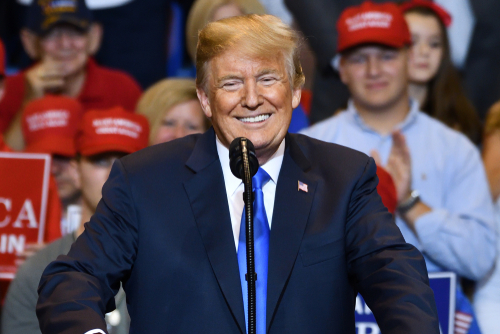
Donald Trump’s return to the political forefront has reshaped partisan dynamics in America, raising questions about the future of the Democratic Party. We are likely witnessing a new alignment of voters. New coalitions were formed in yesterday’s election.
Trump’s Impact on Party Allegiances
With his strategic focus on economic issues, Donald Trump has successfully courted voters traditionally aligned with the Democratic Party. Black males, Hispanic voters, and young voters showed significant shifts, defying the typical demographic expectations. The Republican Party’s targeted outreach has taken effect, consuming a slice of the African American voter base and reversing trends in typically Democratic strongholds such as New York and Illinois.
Donald Trump’s campaign rhetoric decried voter fraud, a notion some believe is lacking substantive evidence, yet influential in stirring political discourse. Concurrently, electoral reforms like updates to the Electoral Count Act aim to maintain integrity within the system by strict adherence to certified results.
Nevada – 1 More Hour!
Polls are open until 7:00 PM local. If you are in line by the cutoff they must let you vote.
GO NOW and STAY IN LINE!
Find your voting location at the link below!https://t.co/czQRkZmr59
— Donald J. Trump (@realDonaldTrump) November 6, 2024
Economic Grievances and Political Realignment
By addressing economic adversity and opposing offshore manufacturing, Trump has tapped into the discontent of communities battered by the changing industrial landscape. The allure of a stable economic future resonates powerfully with voters struggling amid energy poverty and economic uncertainty, sparking a realignment that echoes across both parties.
“Trump has brought home with working class and created a new coalition of governing but the country remains divided and whoever wins must remember it’s time to genuinely reach out to the many moderate voters looking for the right leadership.” – Mark Penn
Despite the Democratic Party’s historical alliance with minority communities, there exists a noticeable absence of Black leadership in pivotal roles. This scarcity hampers their efficacy in communicating and addressing the specific challenges faced by these constituencies. As Trump’s influence continues to grow, re-evaluating these approaches becomes critical.
#Democrats Made a #Trump Comeback Thinkable — If punishing them means rewarding him, that’s a bargain the voters may prove willing to strike.https://t.co/j0mHNqYub9
— Gerard Baker (@gerardtbaker) October 28, 2024
The Road Ahead for American Politics
Trump’s strategic comeback and the realignment spurred by socioeconomic factors demand attention from all political factions. The Democratic Party must consider deeper engagement to reverse the D-Exit trend and recapture the confidence of disenchanted voters. This pivotal period presents an opportunity for leaders to adopt meaningful reforms and bridge gaps in an increasingly polarized landscape.
The unfolding shifts in partisan allegiances underscore a transformative period in U.S. politics, where traditional assumptions are challenged and opportunities for genuine change are ripe for the taking.












